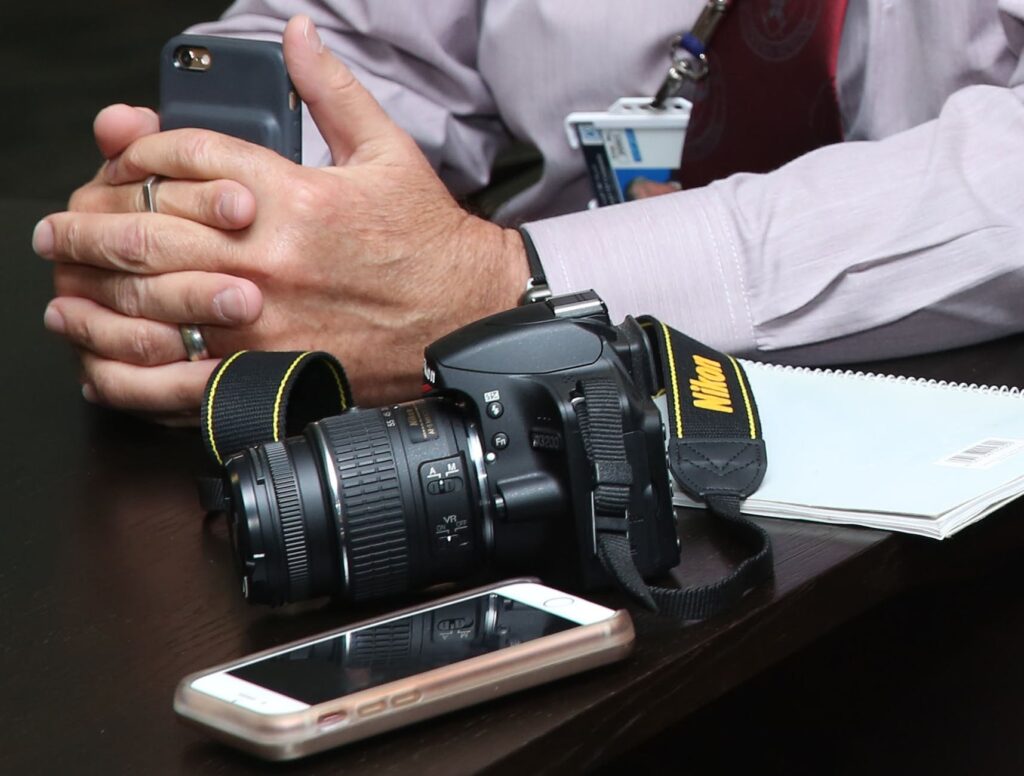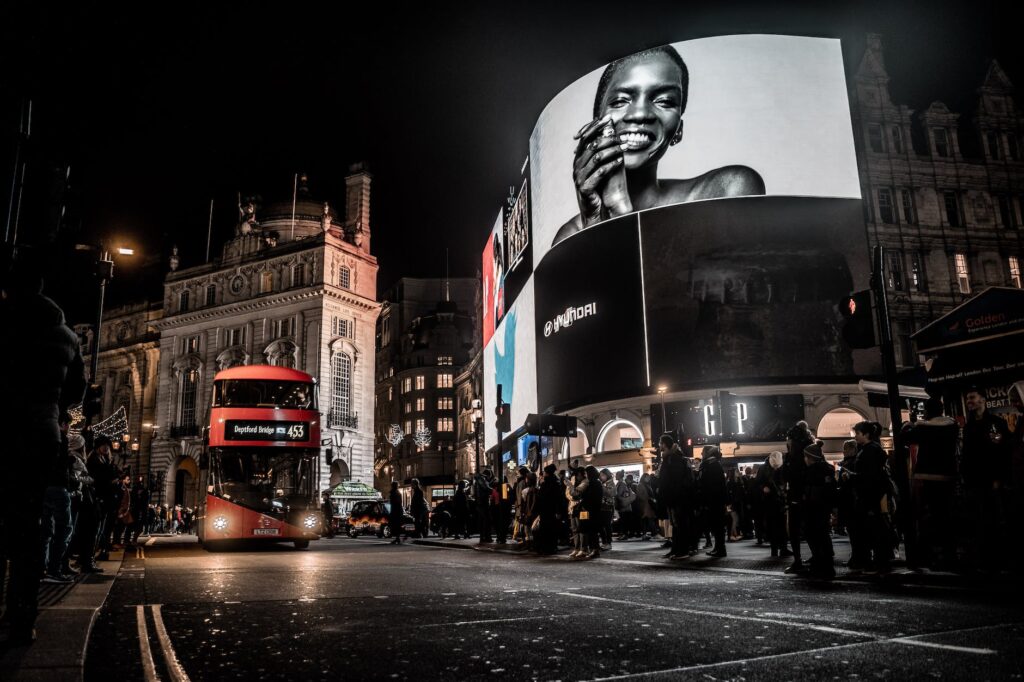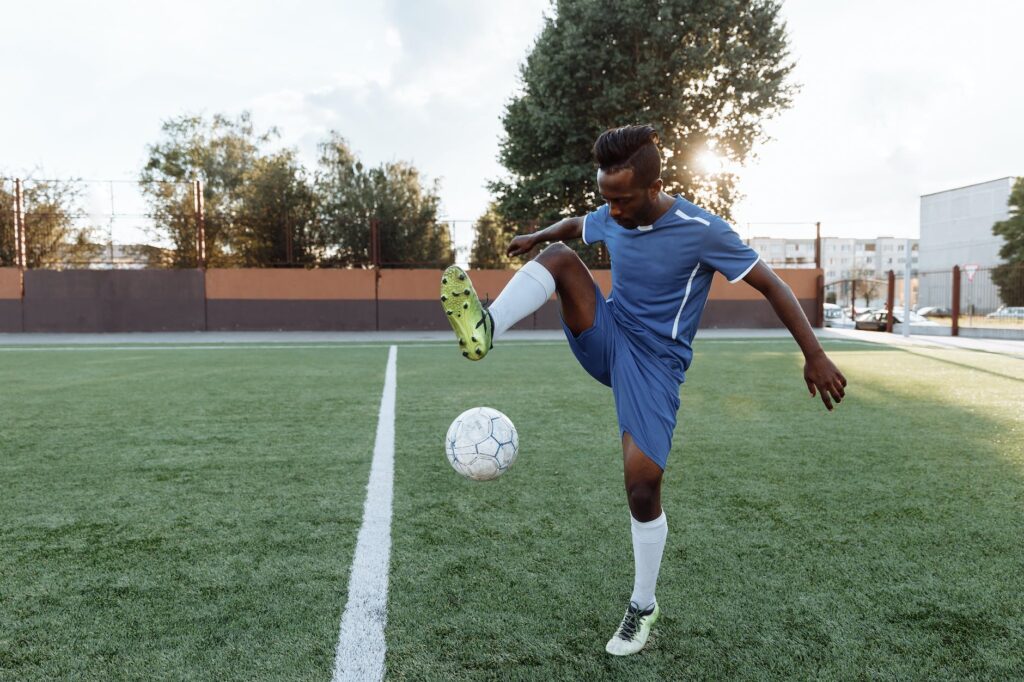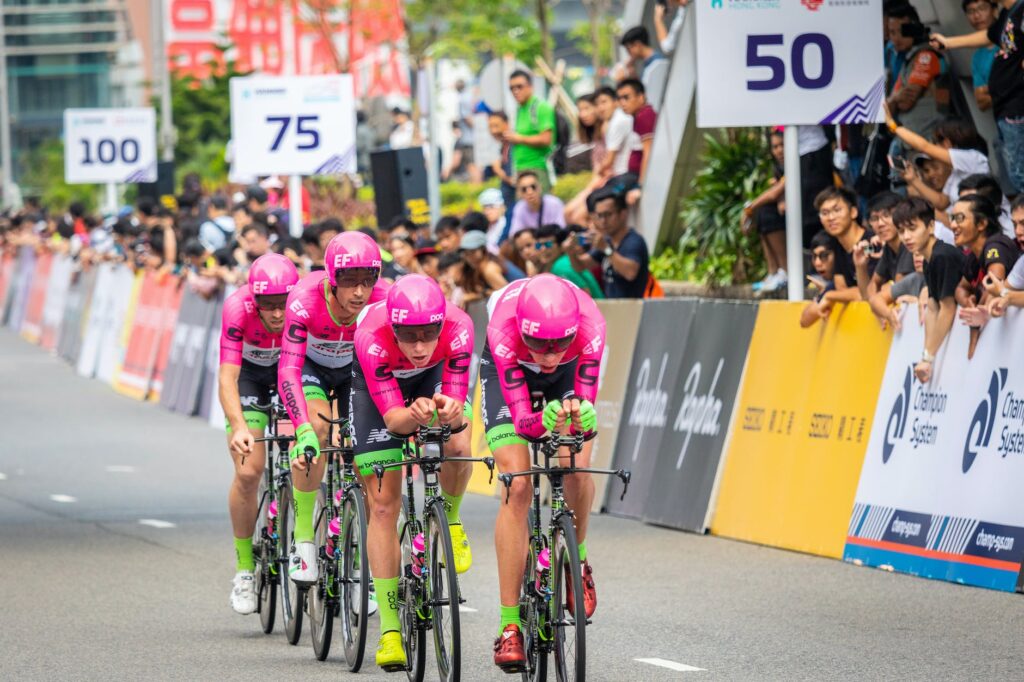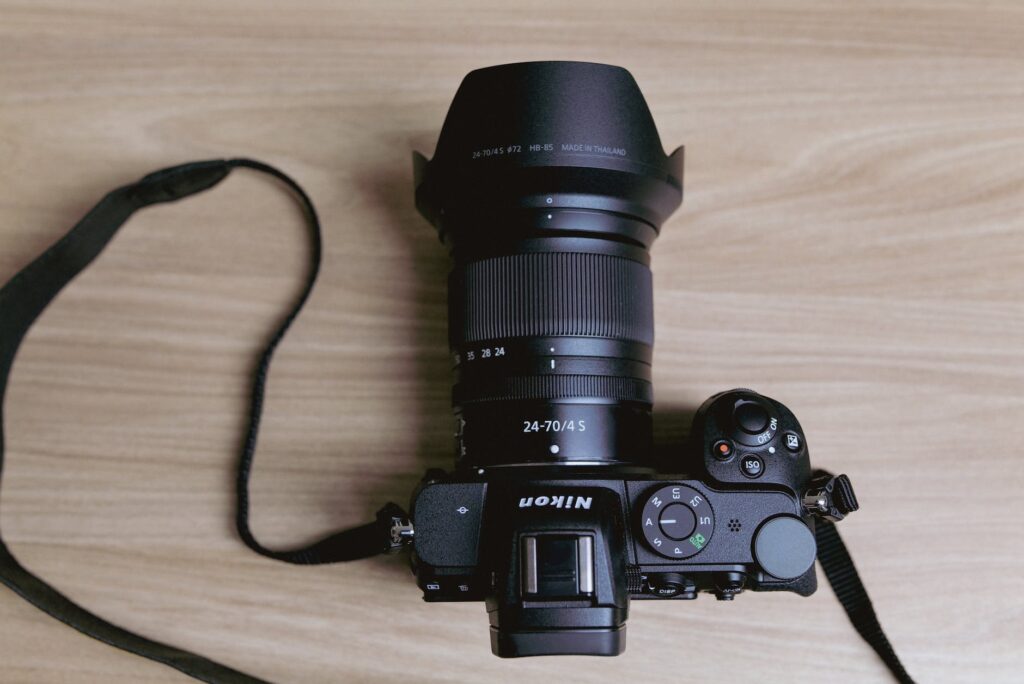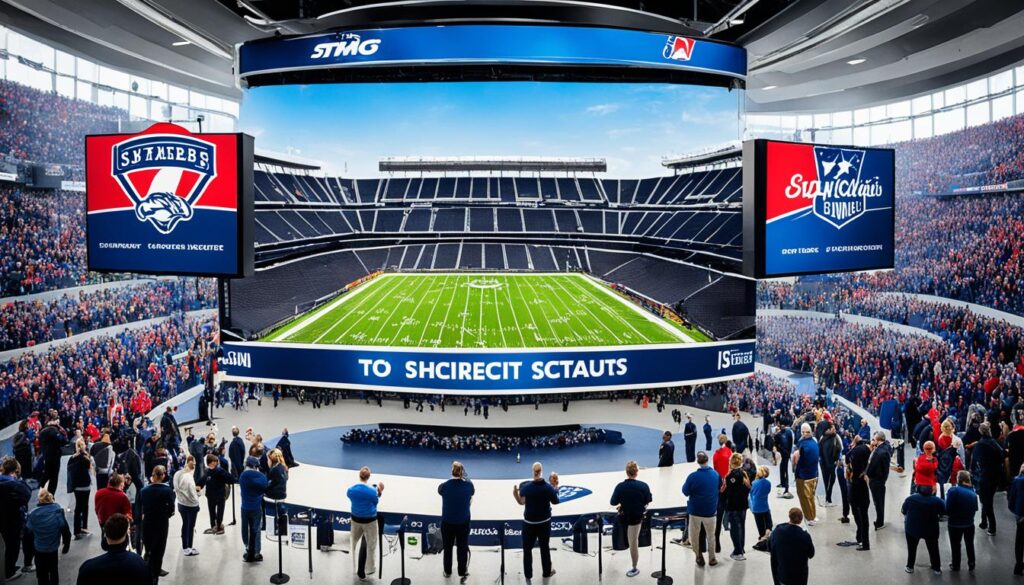Are you a photography enthusiast with a burning passion for sports? Do you dream of capturing the thrill of victory, the emotion of defeat, and the energy of athletic events through your lens? If so, welcome to the captivating world of sports photography, where the art of freezing breathtaking moments in time meets the heart-pounding excitement of sports.
In this comprehensive guide, we will embark on a journey to uncover the secrets of becoming a successful sports photographer. Whether you’re an aspiring professional or a hobbyist looking to take your sports photography to the next level, we’ve got you covered with practical tips and actionable advice.
Practical Tips for Aspiring Sports Photographers:
- Start Small, Think Big: Begin by capturing local sporting events and amateur competitions. This allows you to practice your techniques, experiment with different sports, and build a diverse portfolio that showcases your skills.
- Invest in Essential Gear: A high-performance camera body with fast autofocus, telephoto lenses, and reliable memory cards and batteries are essential for capturing stunning sports images.
- Learn from the Pros: Attend sports photography workshops, conferences, and exhibitions to learn from seasoned professionals. Their insights and experiences can be invaluable in shaping your own journey.
- Network Like a Pro: Connect with local media outlets, sports organizations, and sports enthusiasts through social media. Building relationships in the industry can lead to exciting opportunities and assignments.
- Stay Resilient: Embrace challenges and setbacks as opportunities to grow. The path to success may be filled with obstacles, but perseverance and dedication will propel you forward on your sports photography adventure.
Introduction – Importance and Appeal of Sports Photography
Sports photography is an exhilarating field that combines the artistry of photography with the passion and energy of sports. It allows professionals to capture the thrill, emotion, and excitement of athletic events through their lenses, freezing moments in time and immortalizing the greatest achievements and heartfelt defeats of athletes.
Understanding the Sports Photography Industry
To embark on a successful journey as a sports photographer, it is crucial to have a comprehensive understanding of the industry and its diverse aspects. Here are some key points to consider:
- Exploring Different Sports Genres: Sports photography encompasses various genres, from capturing high-octane action in sports like football, basketball, and soccer to more niche areas like motorsports, surfing, or gymnastics. Each sport presents unique challenges and opportunities, so aspiring photographers should explore and experiment with different sports.
- Various Career Paths: Sports photographers can work as freelancers contributing to media outlets, sports organizations, or commercial brands. Alternatively, some may choose to be staff photographers for specific sports teams or sports publications. Understanding these career options can help determine the path that aligns with individual goals.
Building a Strong Foundation – Education and Training
While a passion for both sports and photography is essential, honing one’s skills through proper education and training significantly boosts the chances of success. Consider the following steps:
- Pursue Specialized Courses: Invest in specialized sports photography courses or workshops. Look for reputable institutions or online platforms that offer comprehensive training in sports photography techniques, action shot composition, and understanding the nuances of various sports.
- Consider a Formal Photography Degree: Pursuing a degree or diploma in photography provides a solid foundation in the principles of photography, post-processing techniques, and visual storytelling. This knowledge extends beyond sports photography and can be beneficial in other photography endeavors as well.
Essential Gear and Equipment
Having the right gear is crucial for capturing stunning sports images. Here are some essential equipment considerations:
- Camera Bodies: Opt for high-performance DSLR or mirrorless cameras with fast autofocus systems and burst modes. Full-frame sensors are preferred for their excellent low-light capabilities and image quality.
- Lenses: Invest in telephoto lenses with a wide aperture (e.g., 70-200mm f/2.8, 300mm f/2.8) to capture close-up shots of distant action. Additionally, a mid-range zoom lens (e.g., 24-70mm f/2.8) can be handy for capturing scenes outside the playing field.
- Tripod/Monopod: While not always necessary, a sturdy tripod or monopod can provide stability for longer shots and reduce hand fatigue during extended shoots.
- Memory Cards and Batteries: High-speed memory cards with ample storage capacity and extra camera batteries are essential to avoid missing critical moments during a match.
- Protective Gear: Sports photography can be physically demanding and potentially hazardous. Invest in comfortable and durable clothing, as well as rain covers to shield your equipment from adverse weather conditions.
Developing a Portfolio
A compelling portfolio is vital for showcasing skills and attracting potential clients or employers. Consider the following tips:
- Start Locally: Begin by capturing local sporting events, amateur competitions, and school tournaments. This provides an opportunity to practice various techniques, experiment with different sports, and build a diverse collection of images.
- Showcase Versatility: Include a variety of shots in your portfolio, such as action shots, emotion-filled moments, and dynamic compositions. Highlight your ability to capture the essence of sports and tell compelling visual stories.
- Use Online Platforms: Create a personal website or utilize online platforms dedicated to photography to display your work professionally. This allows potential clients and employers to view your portfolio easily.
Networking and Marketing
In the competitive world of sports photography, effective networking and marketing are essential for success. Here are some strategies to consider:
- Connect with Local Media Outlets: Reach out to newspapers, magazines, and online media that cover sports events. Offer your services and pitch your portfolio to demonstrate the value you can bring to their coverage.
- Build Relationships with Sports Organizations: Establish connections with sports teams, clubs, and associations. Volunteer to cover their events to gain experience and exposure. Positive relationships can lead to paid assignments in the future.
- Utilize Social Media: Social media platforms like Instagram and Twitter can be powerful tools for showcasing your work and reaching a wider audience. Engage with sports enthusiasts, athletes, and sports media professionals to expand your network.
- Attend Sports Photography Conferences and Events: Participate in industry events, workshops, and conferences to learn from seasoned professionals and network with like-minded individuals.
Navigating Challenges and Setbacks
The journey to becoming a successful sports photographer may involve challenges and setbacks. Here’s how to overcome them:
- Embrace Criticism: Seek feedback from peers, mentors, or potential clients to identify areas for improvement. Constructive criticism can help you grow as a photographer.
- Learn from Failures: Not every assignment or opportunity may go as planned. Instead of being discouraged, view these experiences as learning opportunities to refine your skills and approach.
- Stay Updated on Industry Trends: The sports photography industry evolves rapidly. Stay updated on emerging trends, techniques, and technology to remain competitive.
- Develop Adaptability: Sports events can be unpredictable, with changing lighting conditions and fast-paced action. Be prepared to adjust your settings and shooting style on the fly.
Achieving Long-Term Success
To achieve long-term success as a sports photographer, focus on the following:
- Technical Proficiency and Artistic Vision: Strive for a balance between technical expertise and artistic vision. Continuously improve your photography skills while maintaining your unique perspective.
- Reliability and Professionalism: Building a reputation for reliability, professionalism, and delivering high-quality work is crucial for securing repeat assignments and referrals.
Do you want more in-depth tips on how to succeed as a sports photographer? Take a look at the article Essential Sports Photography Skills for Everyone. Enjoy!
FAQs about Sports Photography
Absolutely! While formal education can provide a solid foundation, it is not a strict requirement. Passion, practice, and continuous learning are equally essential in becoming a successful sports photographer.
Fast-paced sports events can present lighting challenges. Practice shooting in different lighting situations, and experiment with camera settings to achieve optimal results. Consider using high-quality lenses with wide apertures for better performance in low-light conditions.
Invest in a high-quality DSLR or mirrorless camera with fast autofocus and burst mode capabilities. Pair it with telephoto lenses (e.g., 70-200mm f/2.8, 300mm f/2.8) for capturing distant action, and consider a mid-range zoom lens (e.g., 24-70mm f/2.8) for versatile shooting.
Conclusion: Encouragement and Final Tips
Becoming a successful sports photographer is an exciting journey that requires passion, perseverance, and hard work. By following the steps outlined in this guide, you can turn your dream into a thriving career.
Remember that every sports photographer’s path is unique, and setbacks are merely stepping stones towards growth. Embrace challenges, learn from failures, and celebrate your successes, no matter how small.
Chase your dream with confidence, and let your passion for sports and photography ignite your path to success. Capture the essence of sports and share your unique perspective with the world through the lens of a sports photographer!

Hello! I’m Magnus Berglund, a seasoned trendspotter and proud founder of SportsBizTrends.com.
With over a decade of experience as an independent advisor and consultant, I have specialized in business development and creative marketing within the sports industry. This has, among other things, resulted in a book about sports sponsorship (only available in Swedish for the moment).
If you find my writing interesting, please share it with your colleagues and friends. It would be greatly appreciated!
And yes, I do freelance consulting and provide lectures at industry events, business networks, board meetings, and similar occasions. However, since I also work as a Marketing Manager for an industrial company, I choose the occasions wisely.
That said, don’t hesitate to contact me with your inquiry.
With experience from various assignments in strategy, tactical activations, and valuation of sponsorship (from the grassroots level to the English Premier League), I am happy to share my insights and ideas in this fast-paced industry.
For more information about me and my work, including my contact details, please visit the About page, or connect with me via LinkedIn.
